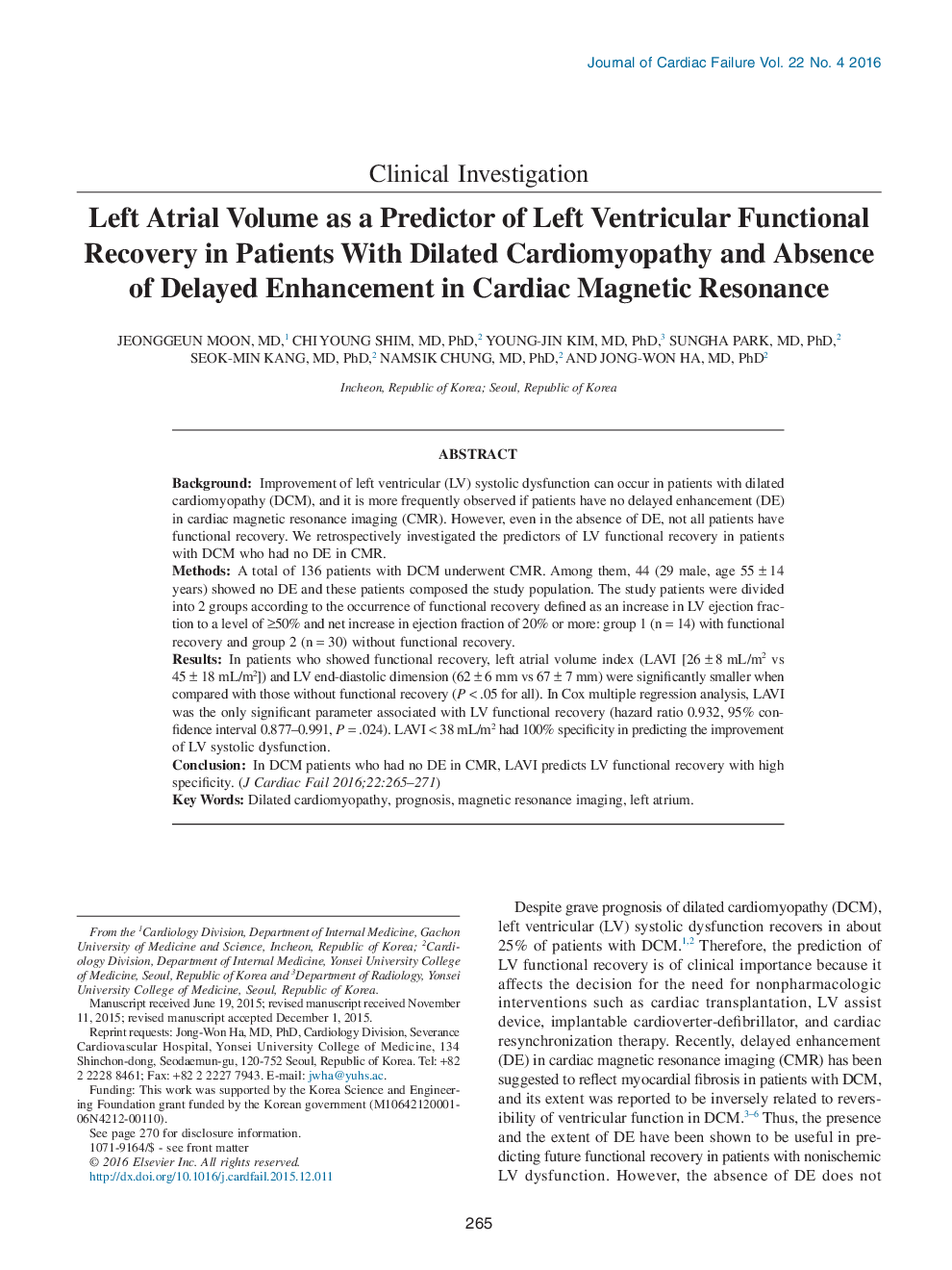| Article ID | Journal | Published Year | Pages | File Type |
|---|---|---|---|---|
| 2958577 | Journal of Cardiac Failure | 2016 | 7 Pages |
•Left ventricular (LV) functional recovery is sometimes observed in patients with dilated cardiomyopathy (DCM).•It occurs more frequently when patients have no delayed enhancement (DE) in cardiac magnetic resonance imaging.•However, the absence of DE does not guarantee future LV functional recovery.•In DE (-) DCM, left atrial volume index predicts LV functional recovery with high specificity.
BackgroundImprovement of left ventricular (LV) systolic dysfunction can occur in patients with dilated cardiomyopathy (DCM), and it is more frequently observed if patients have no delayed enhancement (DE) in cardiac magnetic resonance imaging (CMR). However, even in the absence of DE, not all patients have functional recovery. We retrospectively investigated the predictors of LV functional recovery in patients with DCM who had no DE in CMR.MethodsA total of 136 patients with DCM underwent CMR. Among them, 44 (29 male, age 55 ± 14 years) showed no DE and these patients composed the study population. The study patients were divided into 2 groups according to the occurrence of functional recovery defined as an increase in LV ejection fraction to a level of ≥50% and net increase in ejection fraction of 20% or more: group 1 (n = 14) with functional recovery and group 2 (n = 30) without functional recovery.ResultsIn patients who showed functional recovery, left atrial volume index (LAVI [26 ± 8 mL/m2 vs 45 ± 18 mL/m2]) and LV end-diastolic dimension (62 ± 6 mm vs 67 ± 7 mm) were significantly smaller when compared with those without functional recovery (P < .05 for all). In Cox multiple regression analysis, LAVI was the only significant parameter associated with LV functional recovery (hazard ratio 0.932, 95% confidence interval 0.877–0.991, P = .024). LAVI < 38 mL/m2 had 100% specificity in predicting the improvement of LV systolic dysfunction.ConclusionIn DCM patients who had no DE in CMR, LAVI predicts LV functional recovery with high specificity.
